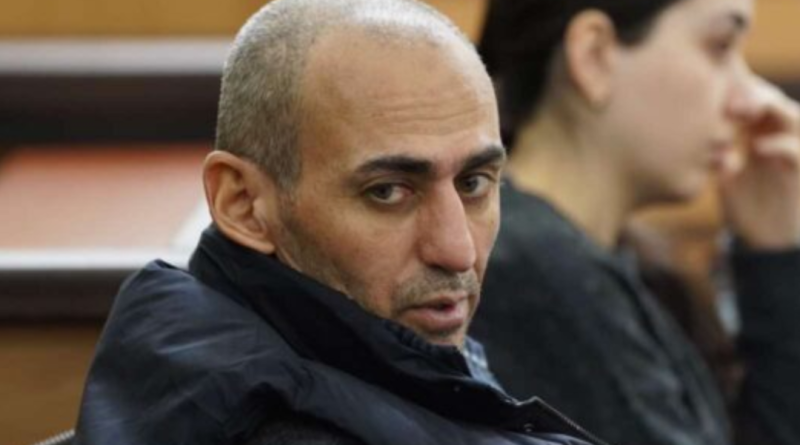“Afgan Sadigov’s health condition is extremely concerning”
Today, Azerbaijani journalist and editor Afgan Sadigov was visited by lawyers from the Social Justice Center at the N18 Medical Facility for Accused and Convicts.
The starving journalist is still not receiving water and nutritional supplements, which are extremely necessary for maintaining his health. According to human rights activists, Afgan Sadigov is already having difficulty speaking and moving around in a wheelchair, and he periodically experiences episodes of fainting.
On February 5, the Social Justice Center reported that Afgan Sadigov’s health condition had deteriorated significantly and he had been unconscious for several hours. With the intervention of doctors from the N18 facility, he was brought out of a critical condition.
On February 2, 2025, after a long hunger strike, Afgan Sadigov declared an absolute hunger strike and refused to take water. The journalist’s radical decision was prompted by the court’s extension of his pre-trial detention for 3 months, despite the European Court of Human Rights’ interim measure prohibiting his extradition to Azerbaijan[1].
On February 6, at the request of his family and the recommendation of his lawyers, Afgan Sadigov agreed to take water, although at this stage, as a sign of protest, he is still not taking either water or the supplements necessary for his body, which were periodically supplied to him through transfusions with his consent.
“ Afgan Sadigov has been on a hunger strike for 145 days and his health condition is extremely serious. Currently, his weight is 56 kilograms, which has decreased by more than 40 kilograms since his arrest. According to the doctors of the penitentiary institution, the damage to his health after a long hunger strike may be irreversible.
Afgan Sadigov’s health condition is also complicated by the fact that in 2020, after his second illegal arrest in Azerbaijan, when he was sentenced to 7 years in prison, he went on a hunger strike for 242 days. During this period, his health deteriorated so much that long-term rehabilitation and treatment abroad became necessary.
The Center for Social Justice calls on:
The Public Defender of Georgia:
To create a special multidisciplinary commission that will regularly monitor the condition of Afgan Sadigov, and also to strengthen the process of mediation and psychosocial support between the state and the prisoner.
Anri Okhanashvili:
Given the extremely difficult situation of Afgan Sadigov, as well as the content and spirit of the European Court’s decision, the Georgian government should make an individual decision to refuse his extradition to Azerbaijan, which is possible under the Law on “International Cooperation in the Field of Criminal Justice,” the Social Justice Center said in a statement.
The fact that Azerbaijan is not a safe country for independent journalists and human rights defenders is indicated by more than one report from a notable agency/organization.
The 2023 U.S. State Department report on the human rights situation in Azerbaijan lists a number of problems, including: torture and cruel, inhuman, or degrading treatment or punishment by members of the security forces; harsh and sometimes life-threatening conditions in prisons; arbitrary detention; serious problems with the independence of the judiciary; political prisoners and detainees; transnational repression of individuals outside the country; arbitrary or unlawful interference with privacy; punishment of family members for alleged crimes of a relative; serious restrictions on freedom of expression and the media, including violence against journalists, arbitrary detention or prosecution of journalists, and the use of criminal defamation laws to restrict expression; serious restrictions on internet freedom; De facto prohibition of the right to peaceful assembly and significant interference with freedom of association; restrictions on freedom of movement; inability of citizens to peacefully change the government through free and fair elections; serious and unjustified restrictions on political participation; serious government corruption; serious government restrictions on the activities of domestic and international human rights organizations; high number of political prisoners is also mentioned in the US State Department report.
QvemoQartli.ge
